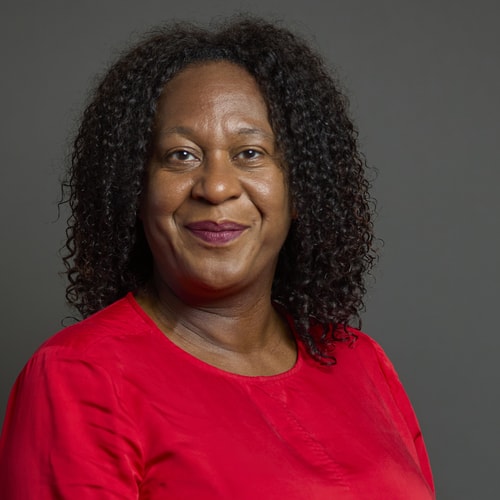Public trust in the government and politics is at an all-time low. At the same time, politicians’ understanding of who evangelicals are and how they engage in politics and public life is often misunderstood. Read on to learn what issues local church leaders from Nottingham raised with their MP and to hear a Christian MP’s perspective on how the church can influence politics biblically.
Our purpose as an advocacy team is to speak out on issues that matter with a hope-filled, trustworthy and confident voice and to speak up prophetically about what is happening across the UK and the hope Jesus brings.
As the head of public policy, I have the joy and the challenge of providing strategic oversight for our parliamentary and policy engagement in Westminster, Holyrood, the Senedd and Stormont, constantly re-presenting the breadth of our membership and representing their concerns to policymakers. Occasionally I have moments where I can bring both worlds, the church and politics, into shared dialogue to hear and learn from one another. I often say to colleagues that I view advocacy as evangelism but to a policy-focused audience. In our time of fracture and dissent, the message of the cross has the power to transform lives and communities and heal our politics.
Since the 2024 elections the team have been tirelessly involved in building relationships with the 335 new MPs. Over the year I have met with Juliet Campbell, Labour MP for Broxtowe, several times to provide insights into how evangelicals engage in public life based on our Thinking Faithfully About Politics research and have briefed her whilst she was on the assisted suicide Commons’ committee. Following one of our meetings she expressed a personal faith and interest in connecting with local evangelical church leaders in Nottingham. So, what were the issues church leaders brought to the meeting?
Three policy points raised during the meeting
There were multiple concerns and issues in Broxtowe that the church leaders wanted to raise, but – limited by time – they led with these three concerns:
- The possible borough council merger with Nottingham City under the UK government’s devolution reorganisation in England and the risk of under-funding for public services locally.
- That the Universal Credit sanctions system had prevented those within their congregations and surrounding community from accessing statutory support needed to provide for their families and break the cycle of poverty.
- Divisions within wider society and the rise of malicious activity at a local level and UK-wide.
The benefit of a meeting like this over an email exchange or even attending a constituency surgery was the opportunity for dialogue and debate in real time with one another.
Juliet helpfully summarised the policy intent of the government and also her limitations as a MP to institute unilateral change. She went on to share how church leaders and congregants could feed into a Nottinghamshire residents’ consultation; many took the link and went on to complete the online submission.
As a group they were also able to inform Juliet about an upcoming Together for the Region one-day conference that brings together churches, civil society groups and charities with council and regional leaders across Nottinghamshire and Derbyshire.
The hour meeting was such a positive exchange for both the MP and the church leaders. Both left encouraged about what God would do through this collaboration going forward and a follow-up meeting is on the horizon for 2026.
Our local churches are a vital part of our community, and I am really glad for the opportunity to hear about the work they do supporting their parishioners.

Building a reciprocal relationship with your constituency’s MP
We work to amplify the voices of our members to policymakers, and resource and equip our members to engage with politics while reflecting our Christian values.
One key takeaway from the meeting for me was when Juliet spoke candidly about how as a Christian in politics she wants to develop a reciprocal, not just a transactional, relationship with local churches. By this she meant regular engagement with churches and those she knew to be brothers and sisters in Christ. She expressed a disappointment in not receiving a personal invitation to attend a Sunday church service or missional event a year on from her election victory. She noted that it wasn’t until the London team met with her that she became aware of evangelical churches locally. Her second point was to ask how often they as church leaders gather together to pray specifically and strategically for community change in the area.
So, my question to you as a reader and member of the Evangelical Alliance: have you reached out to your MP, Christian or otherwise, to invite them to a local service, and are you praying regularly for your MP and the community where God has placed you?
Writing letters, joining online campaigns and holding meetings are all important tools to influencing politicians, but from attending this meeting I was reassured that our greatest influence in politics and public life is prayer. So let us be intentional in praying for our leaders and persistent in bringing the needs of fellow congregants and our neighbours before the Lord, asking Him how He wishes to use us to be an answer to that prayer for someone else.
Keeping your data secure is very important to us. By providing your personal details you agree to allow the Evangelical Alliance to contact you either on the basis of the consents you have given us or for our Legitimate Interests in accordance with current data protection regulations. We will never make your personal data available for marketing purposes to external individuals or organisations. For more information view our privacy policy or email [email protected].


